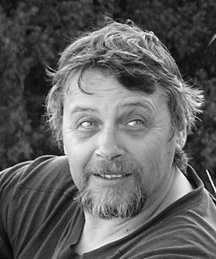
Today, we are starting a series of conversations with an author, a poet, a Tarot scholar and a mythologist Richard Roberts.
In the 1960s, Alan Watts presented Roberts with a letter of introduction to Joseph Campbell, which led to a 20-year mentorship with the famed scholar of mythology – a partnership which included collaborating in seminars and writing books, and which lasted through the remainder of Campbell’s life.
In his college days, Roberts had vowed never to write a novel until he had an idea no writer before him ever had. In a vision, he conceived of a book in which his characters would “go into” other literary classics and interact with the characters, all the while writing in the style of the original authors of those classics. Roberts regards the resulting book, The Wind & The Wizard, as his life’s masterwork.
In this episode, Richard Roberts describes how he came to meet Joseph Campbell and the related part of his life and work at the time.
- Alan Watts and “the Hero with a 1000 faces”
- Richard came to California in 1956 – always carrying J. Campbell’s book, even to the beach
- Alan gave him a letter of introduction to J. Campbell
- Meeting with the mentor Joseph Campbell
- At the athletic club, running around the track
- That evening Joseph’s wife was returning from a world’s tour of her dance version of “Finnigan’s Wake”
- After running around the track, Richard and Joseph went to the bar, and after a few drinks became friends for life
- “Waiting for the Goddess to unlock the waters”
- Joe stays over and Henrich Zimmer is introduced
- Richard lets Joseph stay in his apartment in San Francisco for his Bay Area trip. Joseph later ships two boxes of books by Henrich Zimmer on Indian art and civilization to Richard as a thank you gift. These books furthered Richard’s interest in gnosticism.
- Joe and The Major Arcana Tarot
- Joe was shown a deck of Tarot cards that he saw last time in 1940s at his friend’s Henrich Zimmer, who apparently was a Tarot scholar as well.
- Richard was also given a deck of cards that were alchemical in nature.
- They later began to correspond about arrangements of the Major Arcana
- Gnostic Traditions, Jane Roberts & Nag Hamadi Library
- In 1972 the book “Seth Speaks” came out (Jane Roberts).
- Aug 11, 1971 – last session of Seth. Christ was not crusified – it was a conspiracy.
- Laughing Jesus and Joe Campbell
- “A Seth Reader” book by Richard
- Joe read “A Seth Reader” and said, “I think this is how the Universe works”
[techtags: Richard Roberts, Joseph Campbell, Hero with a 1000 Faces, Alan Watts, Tarot, Seth Speaks, Nag Hamadi Library]

